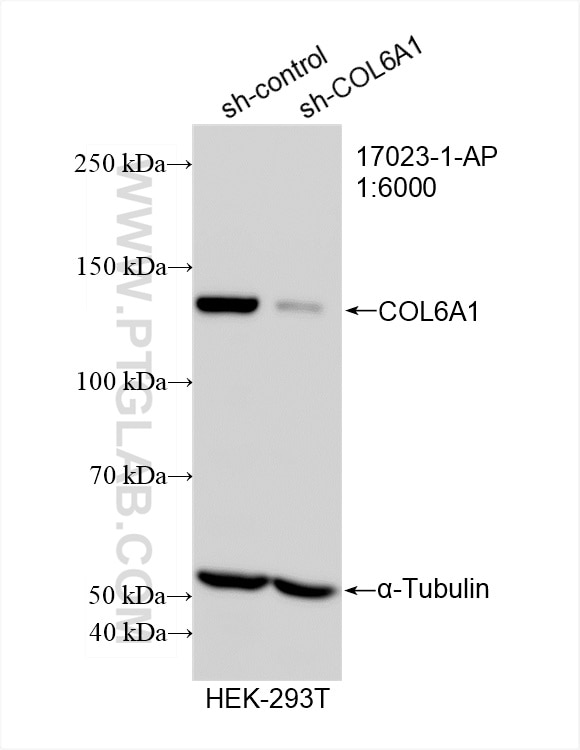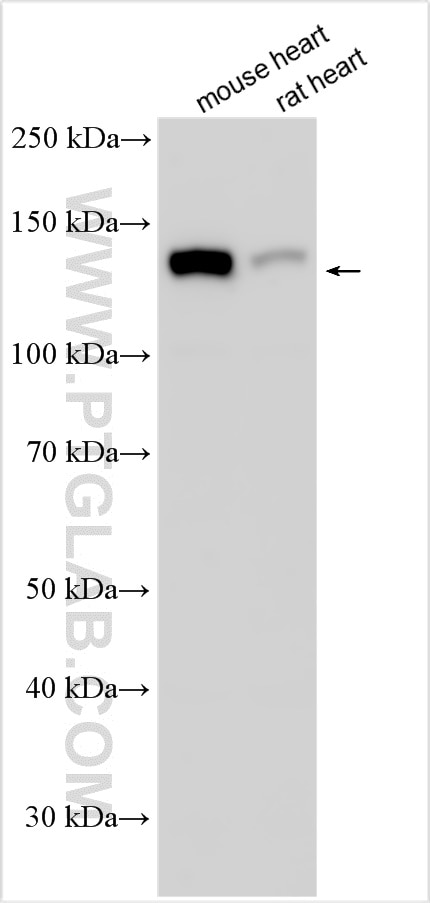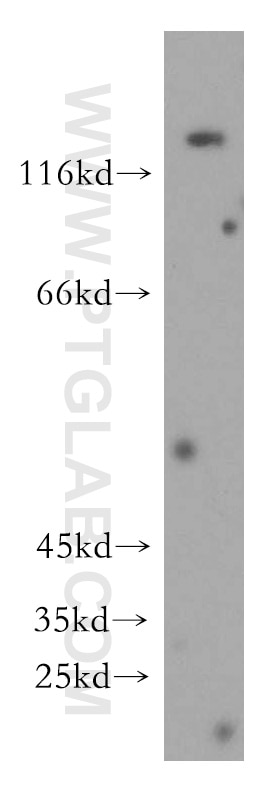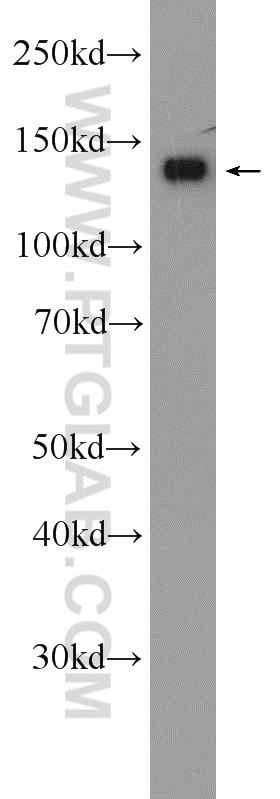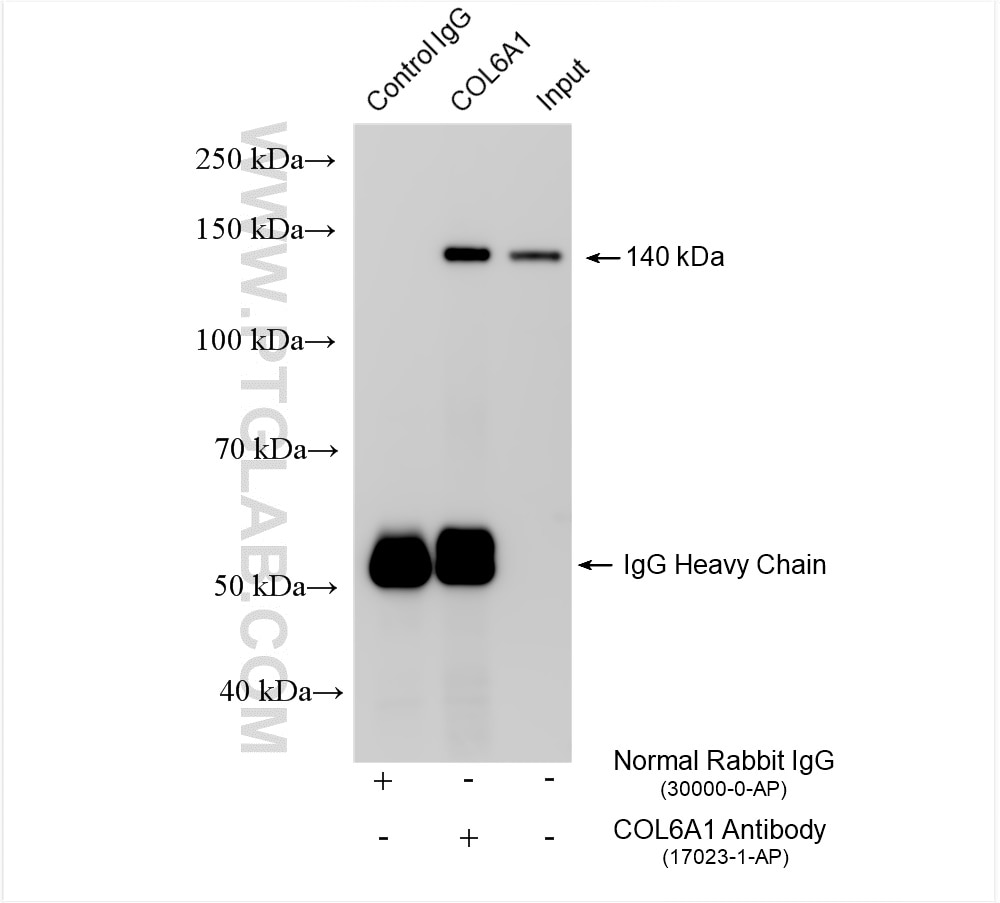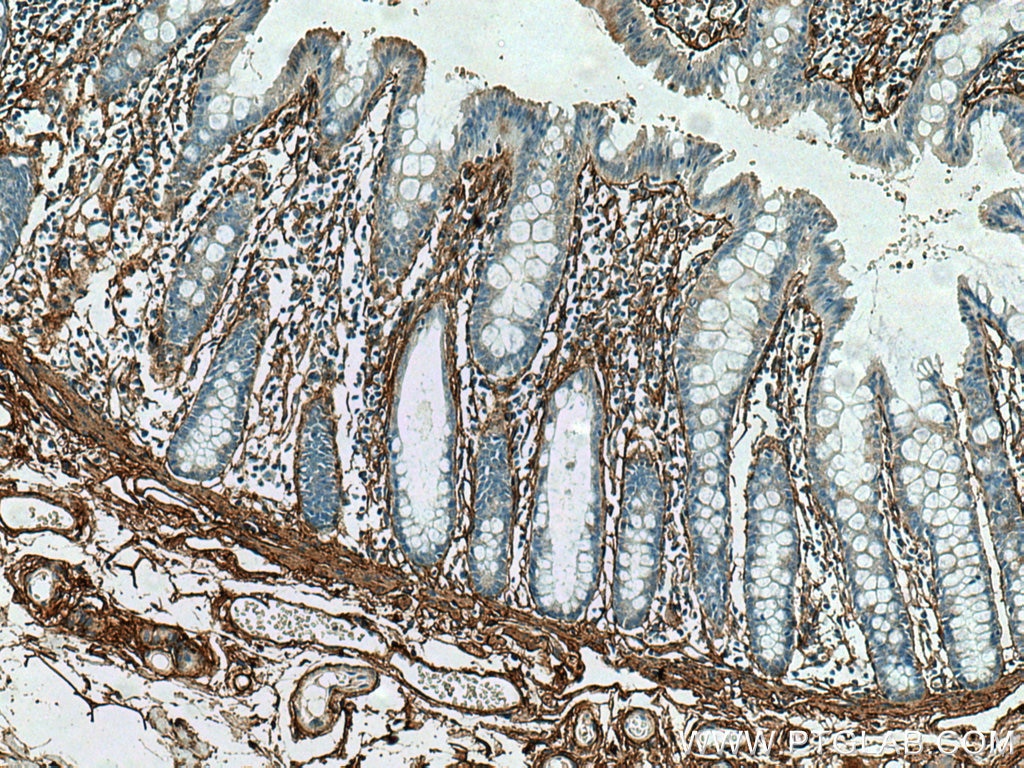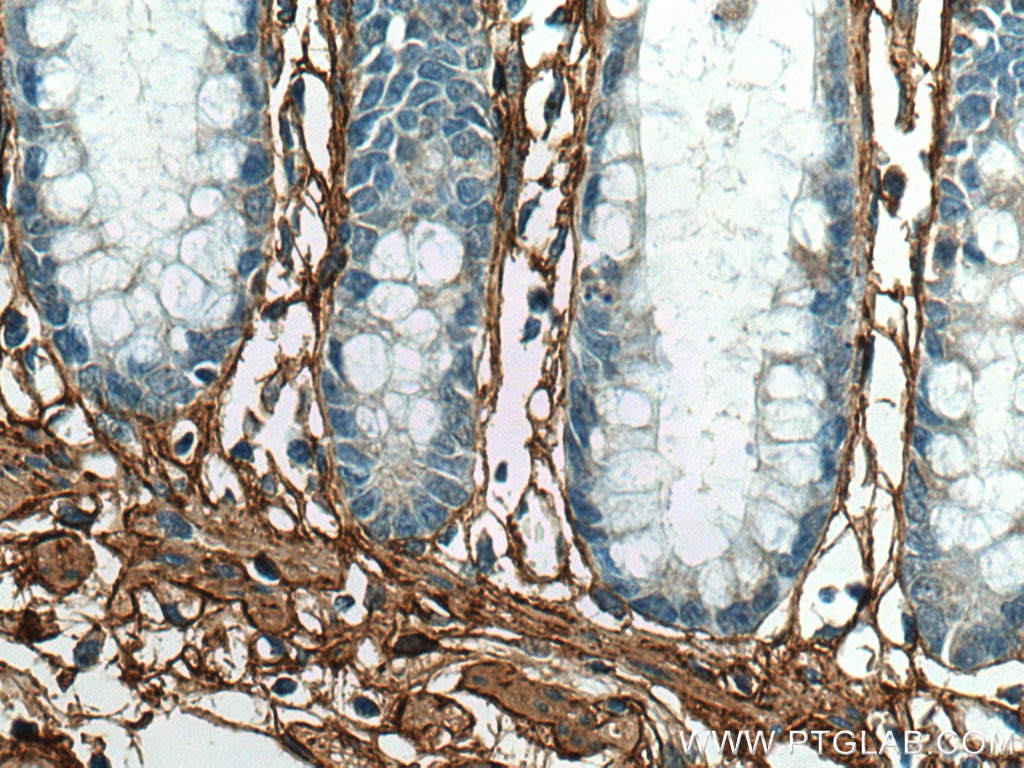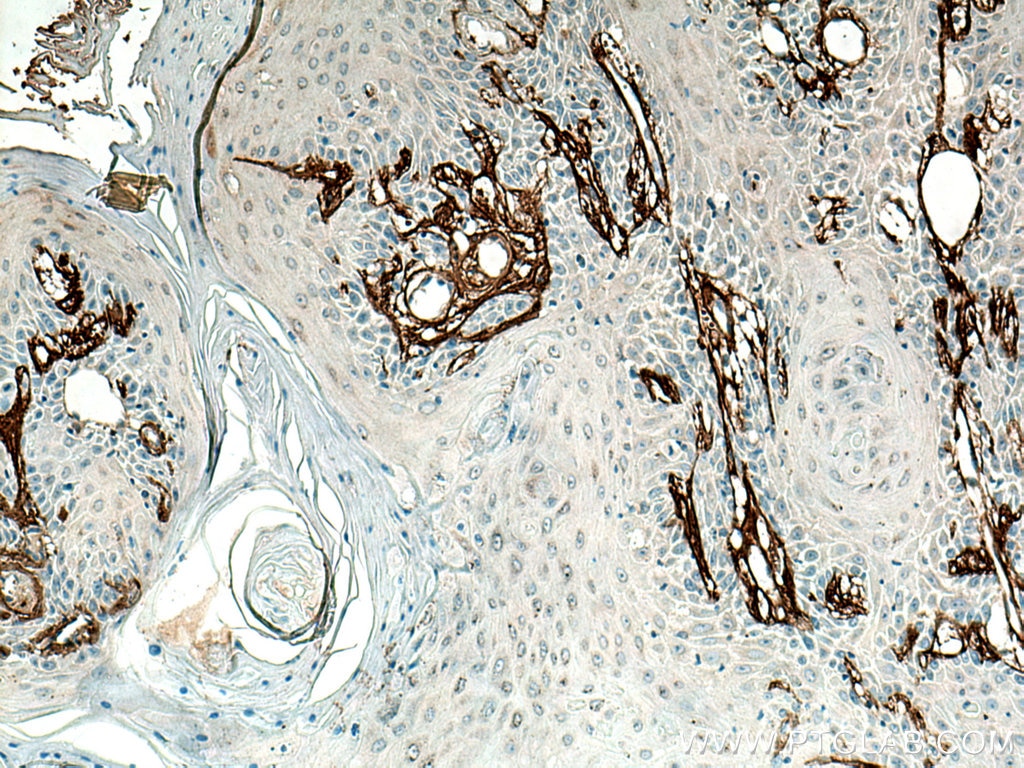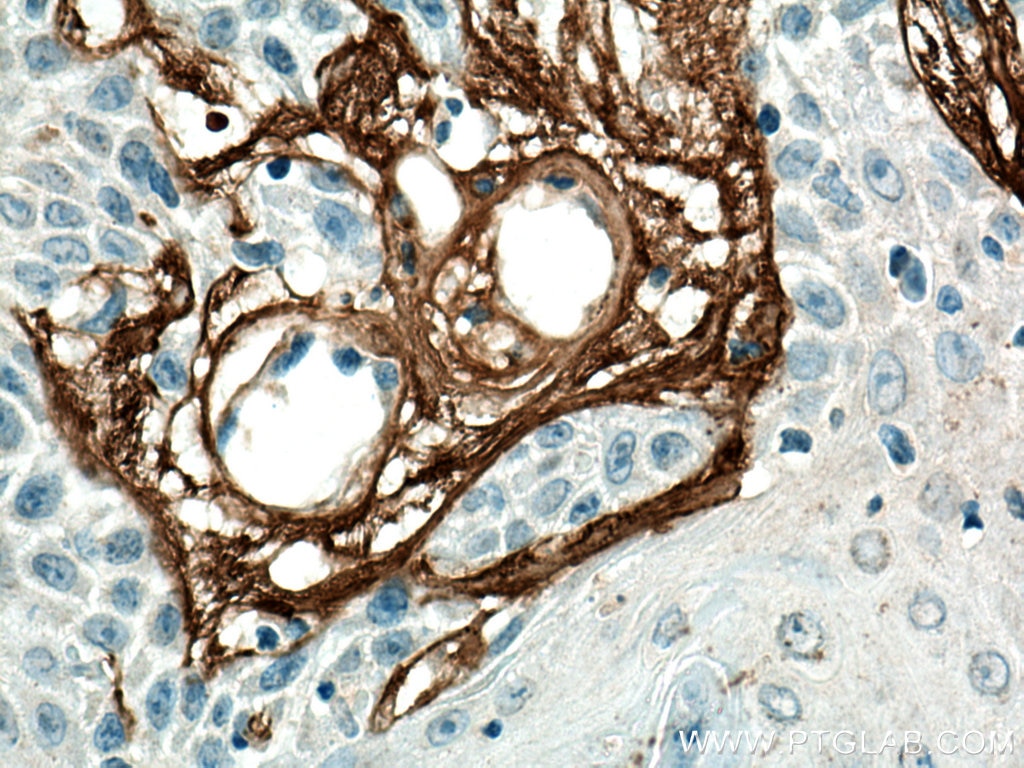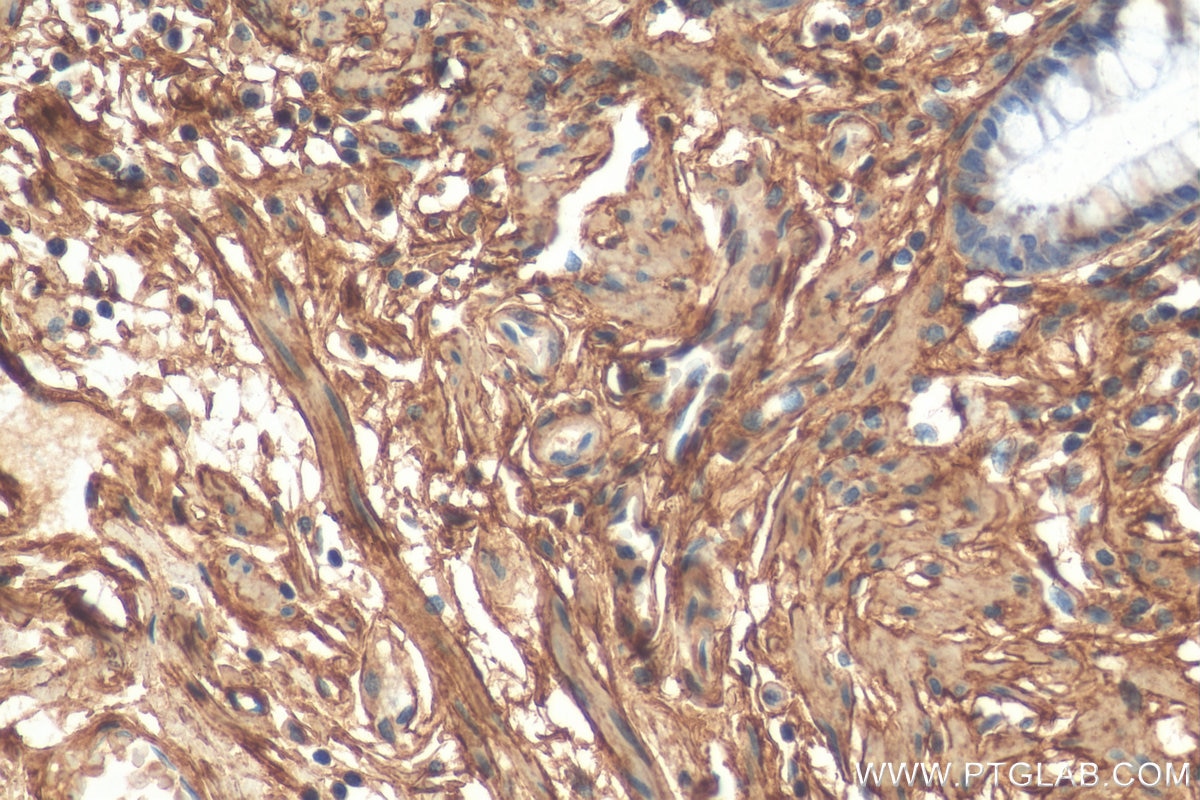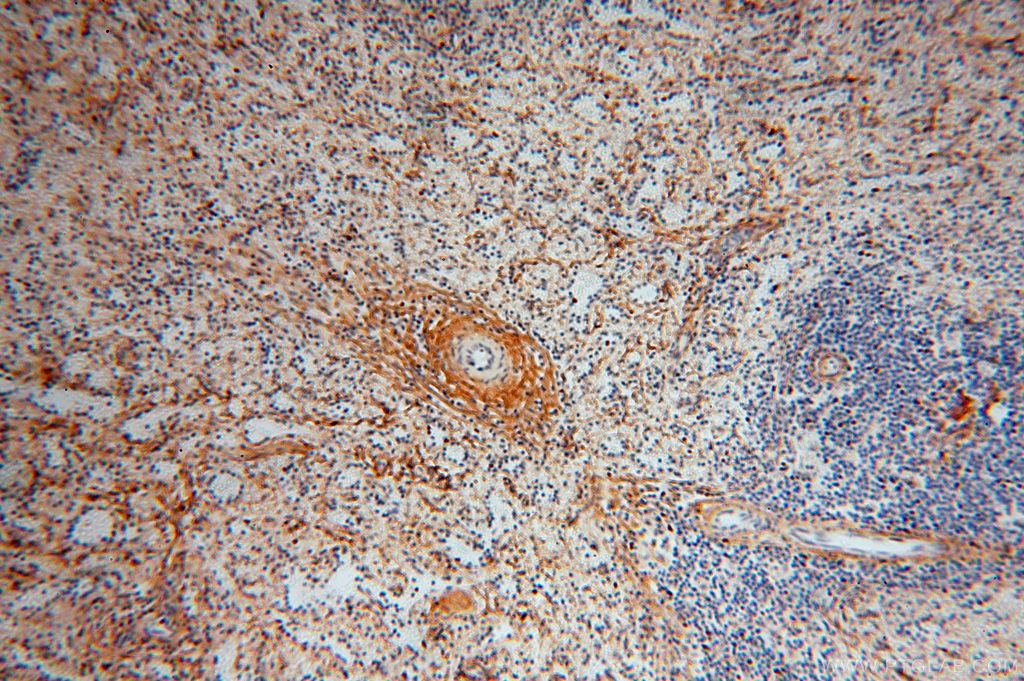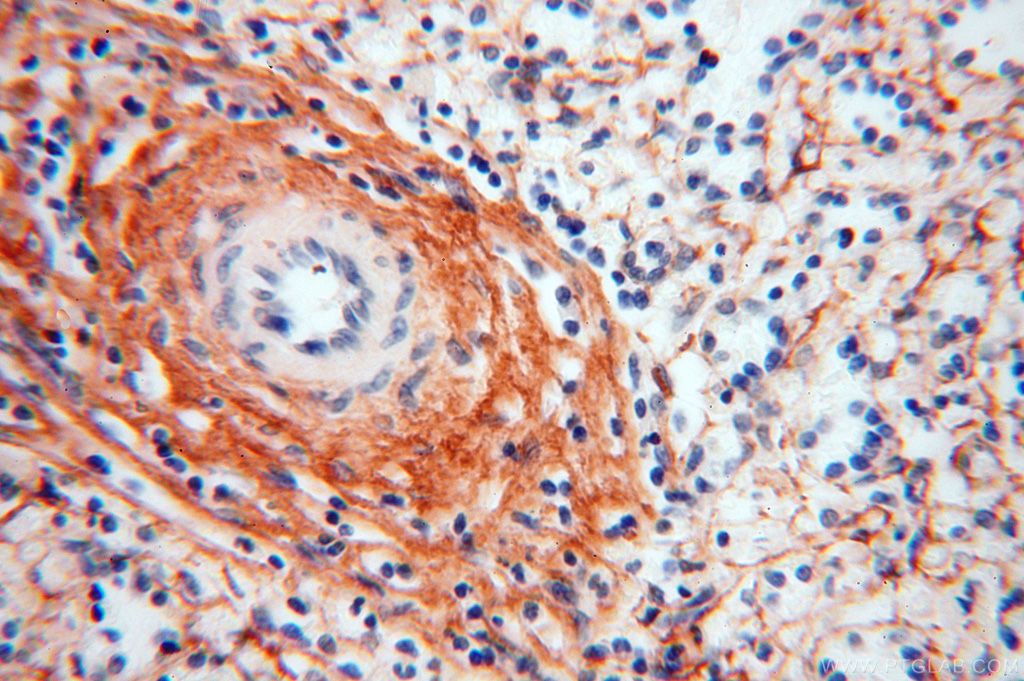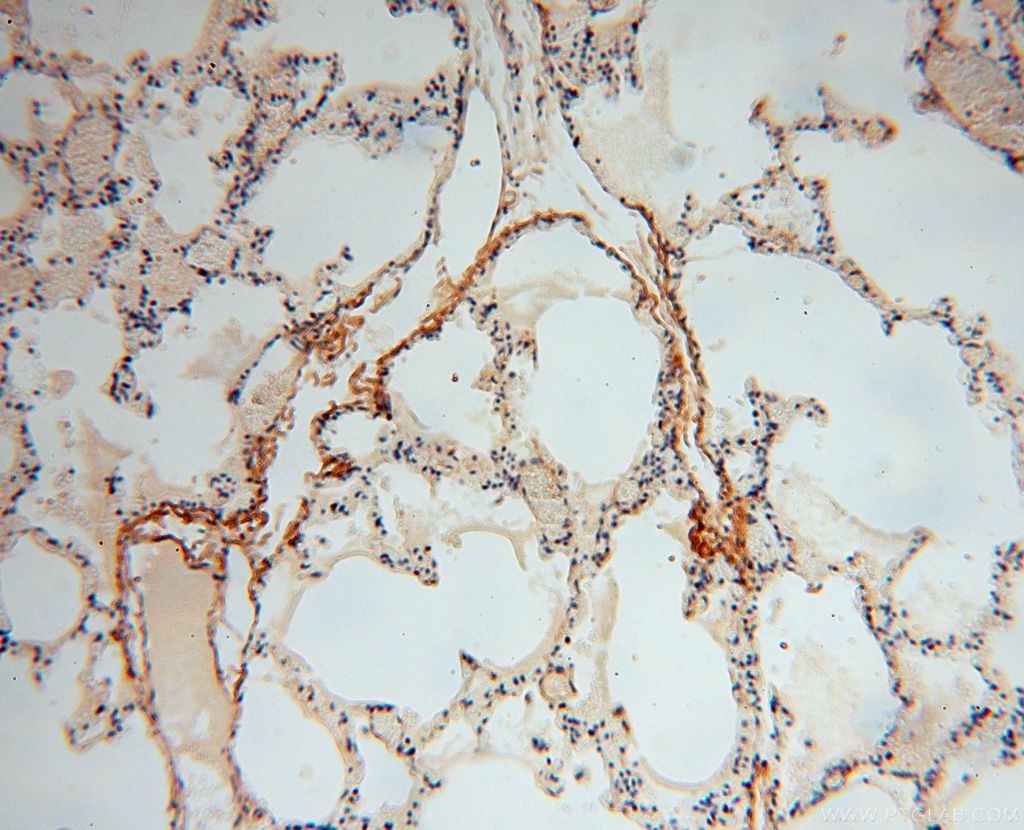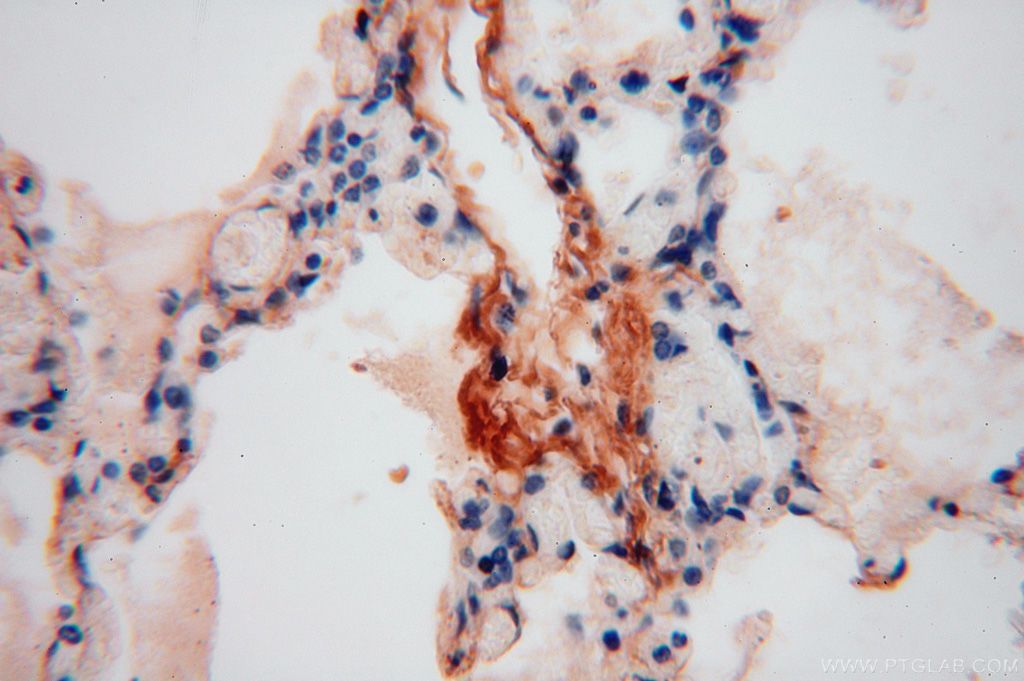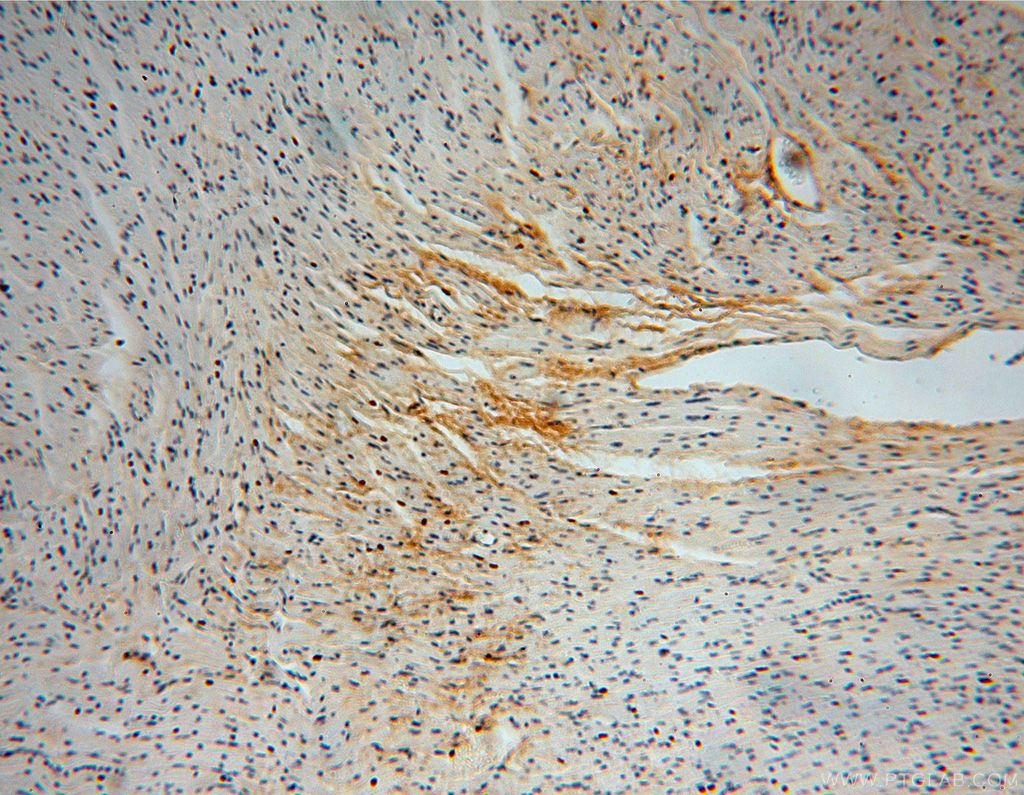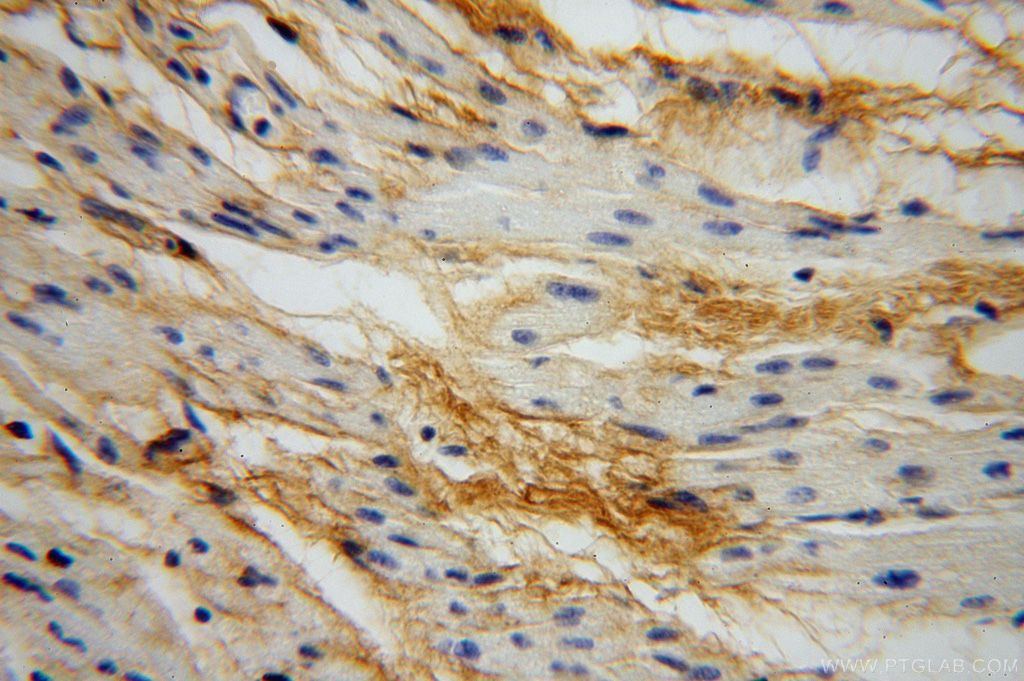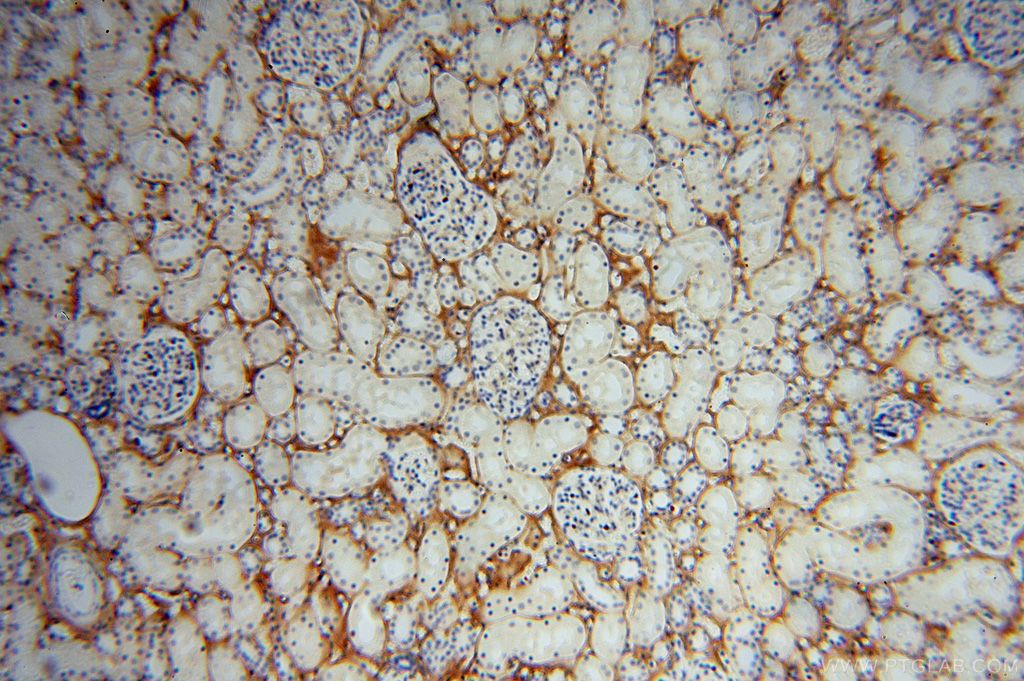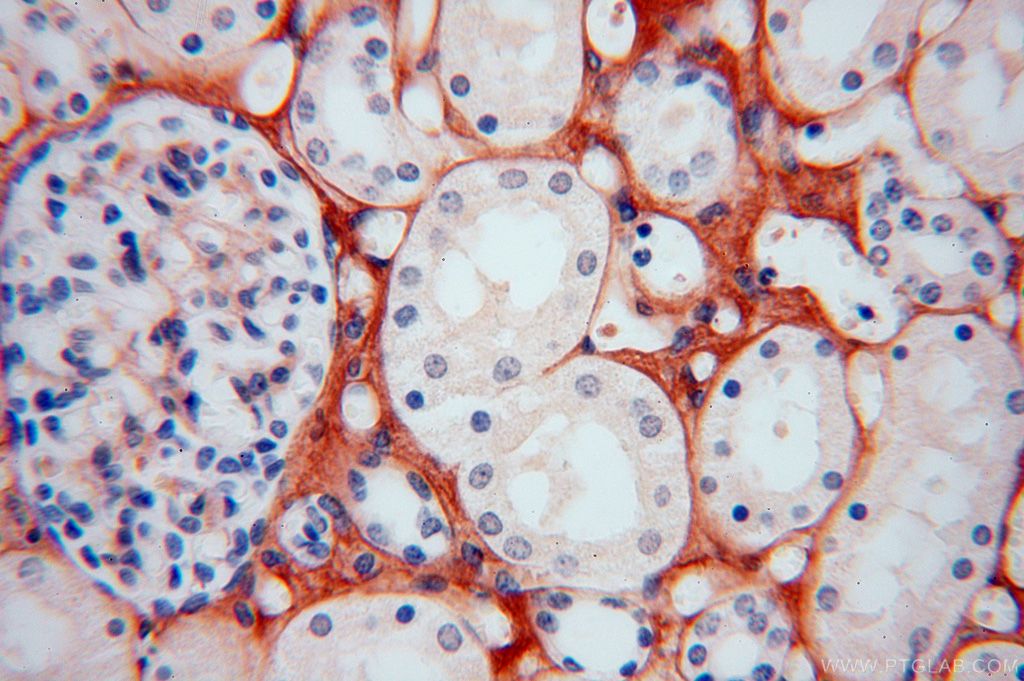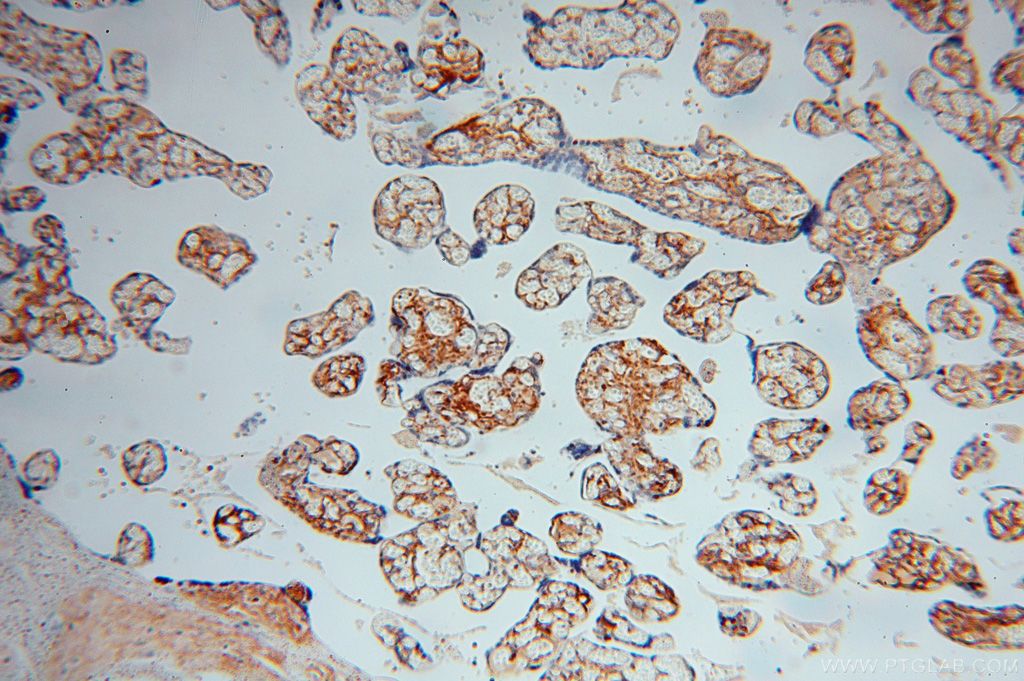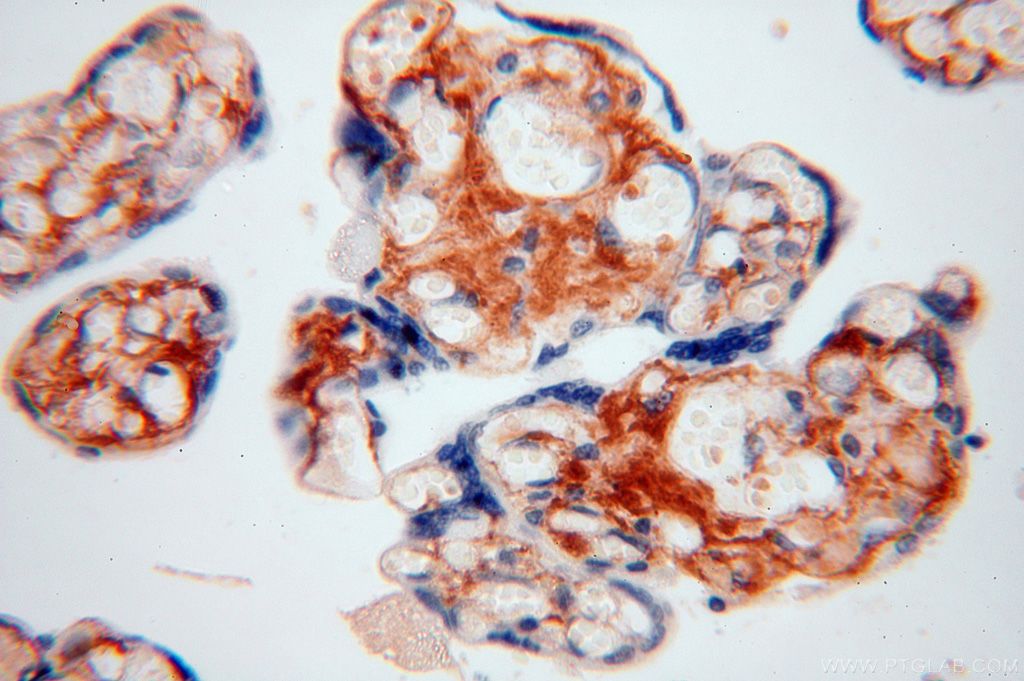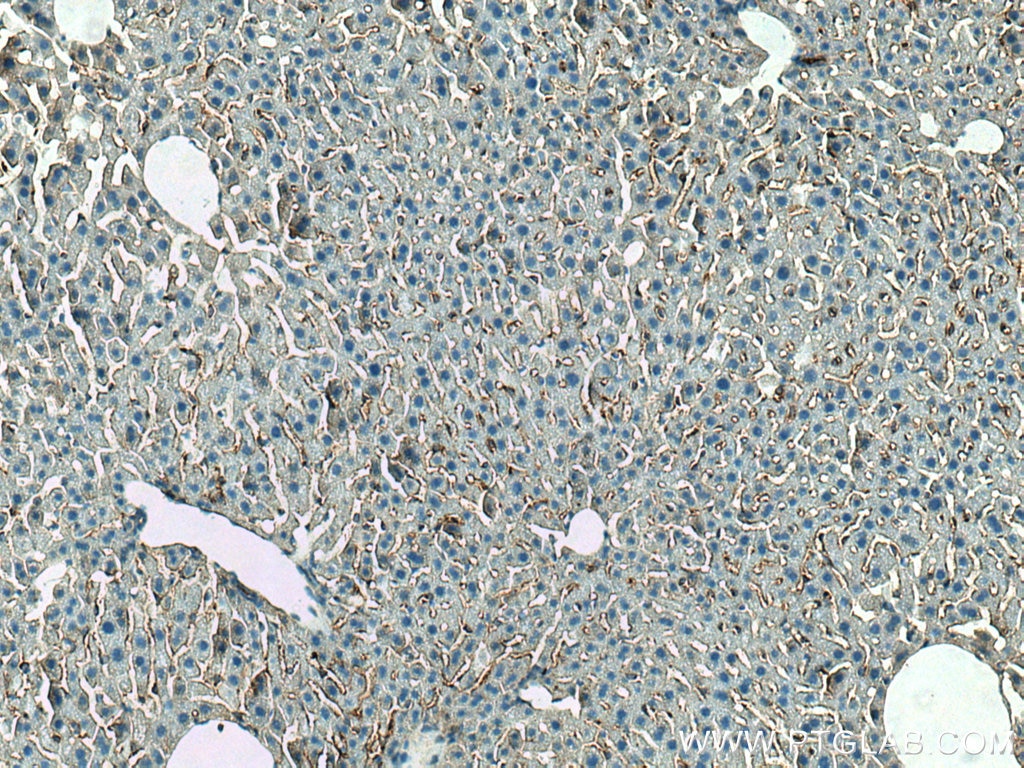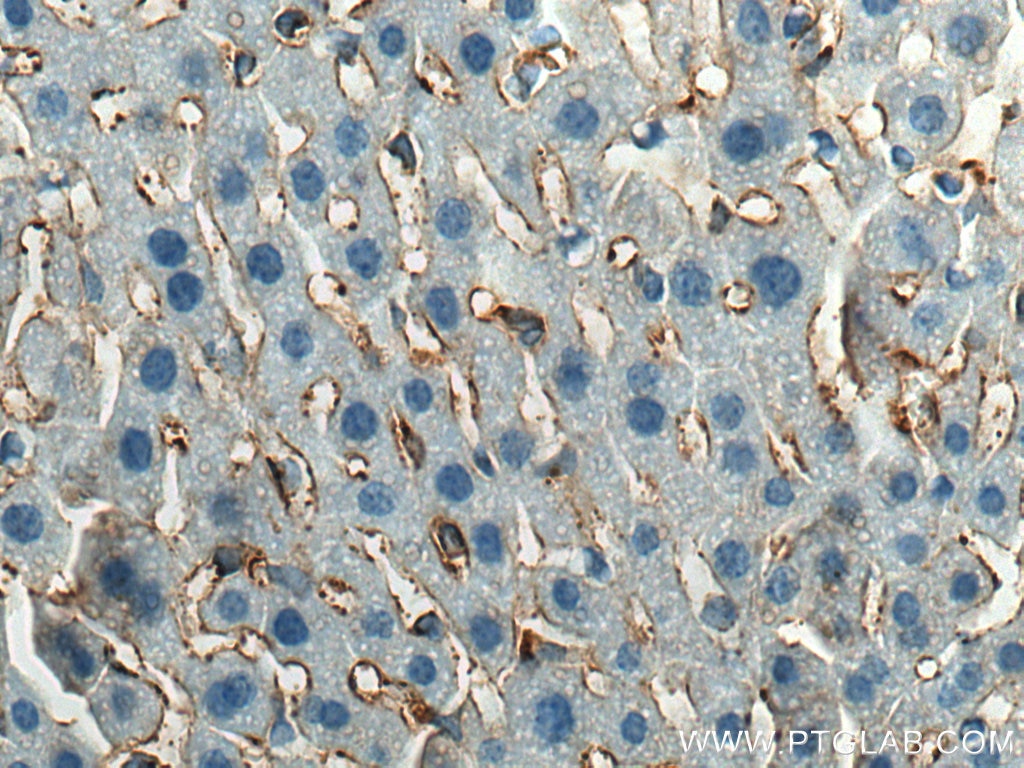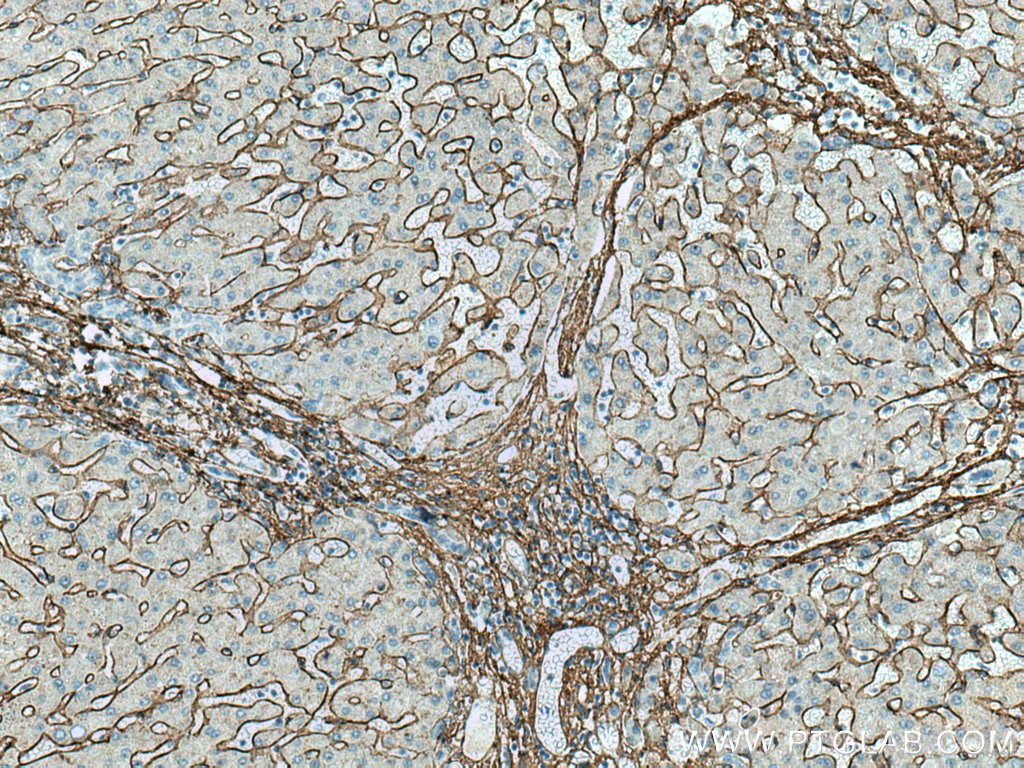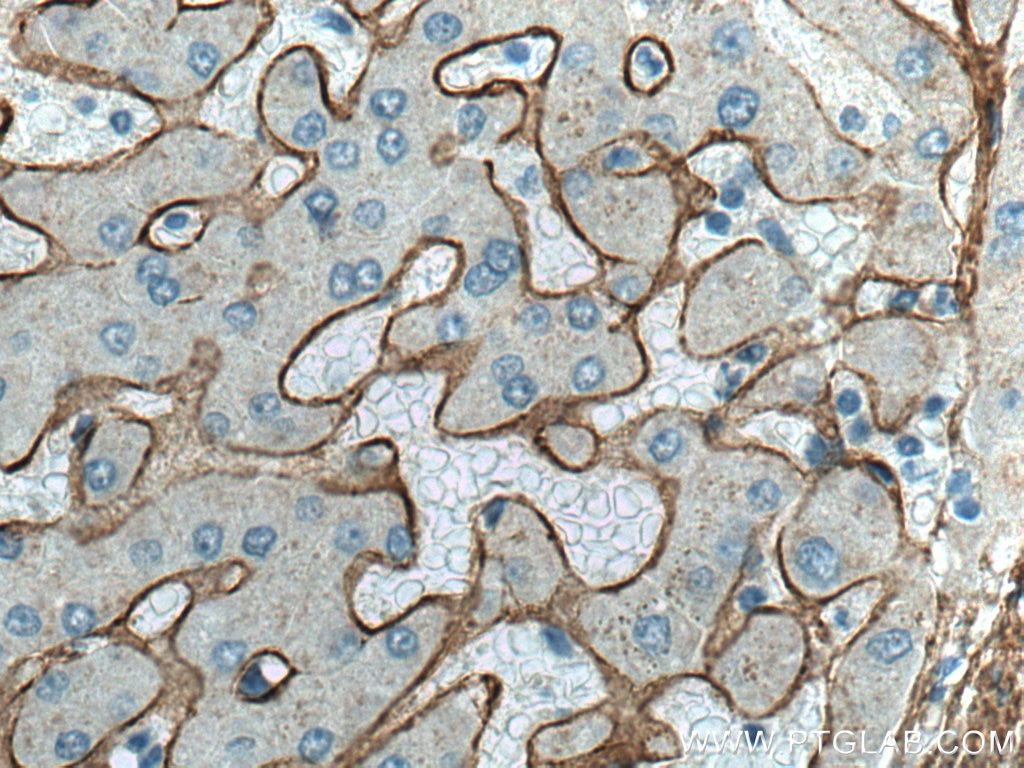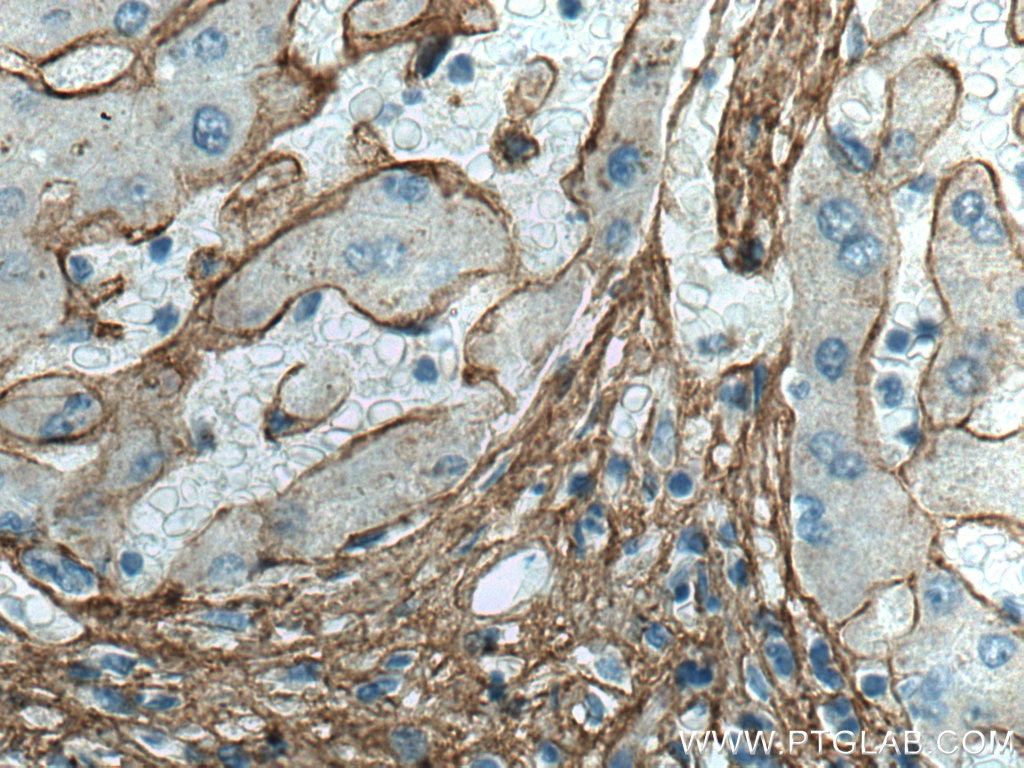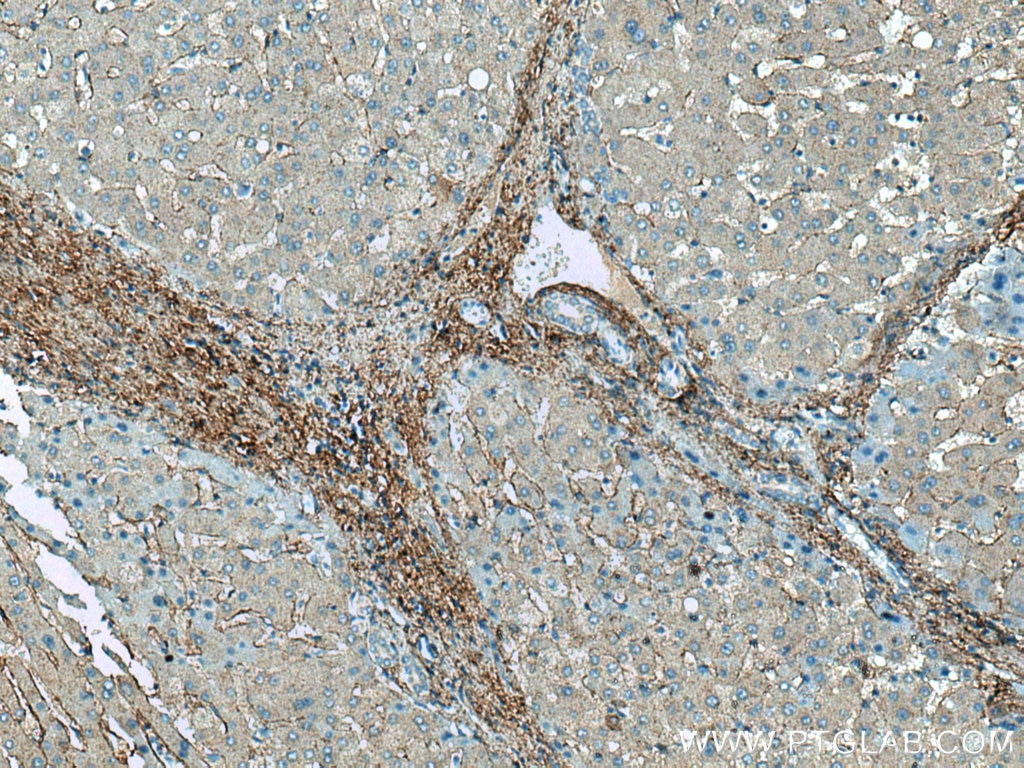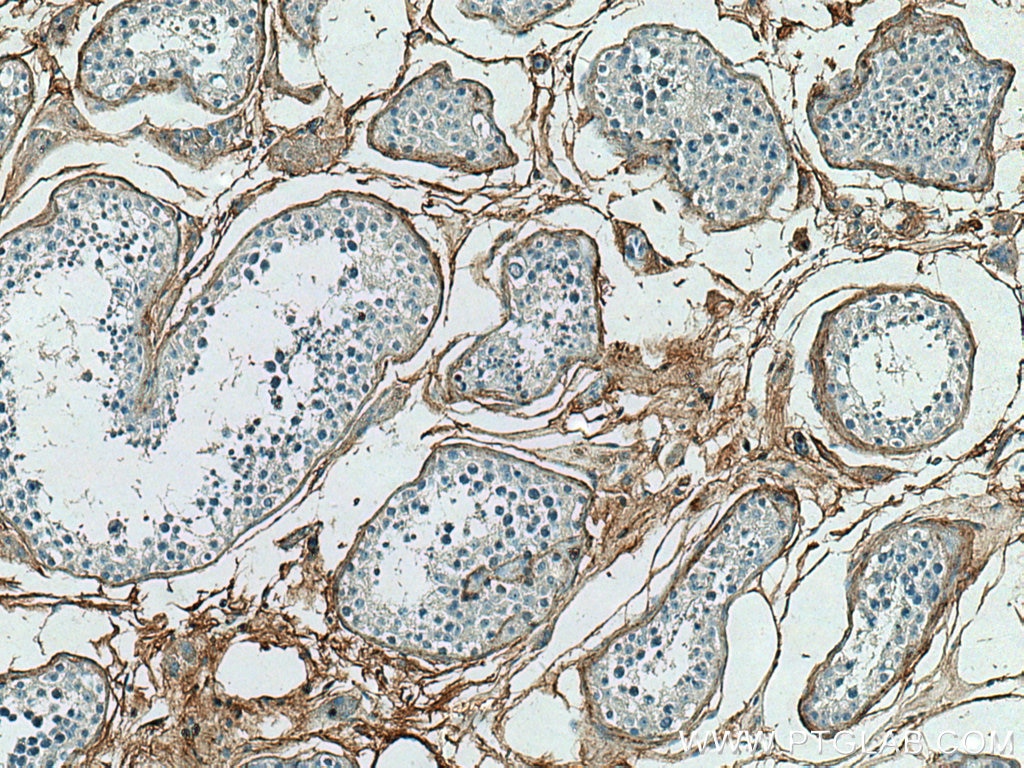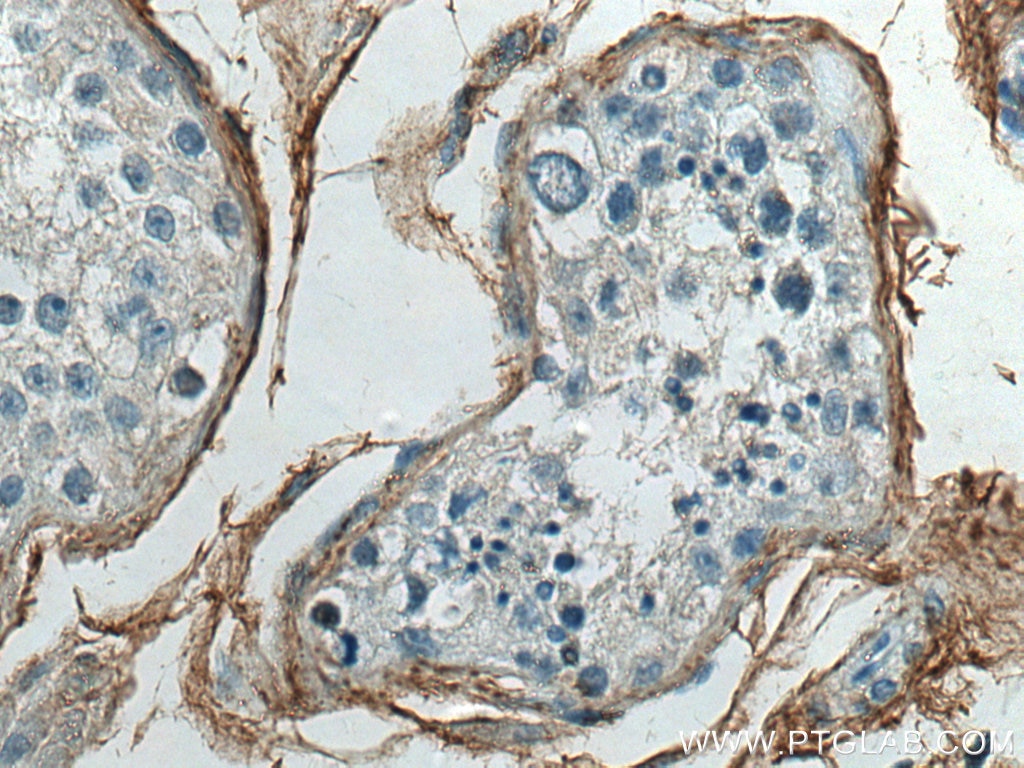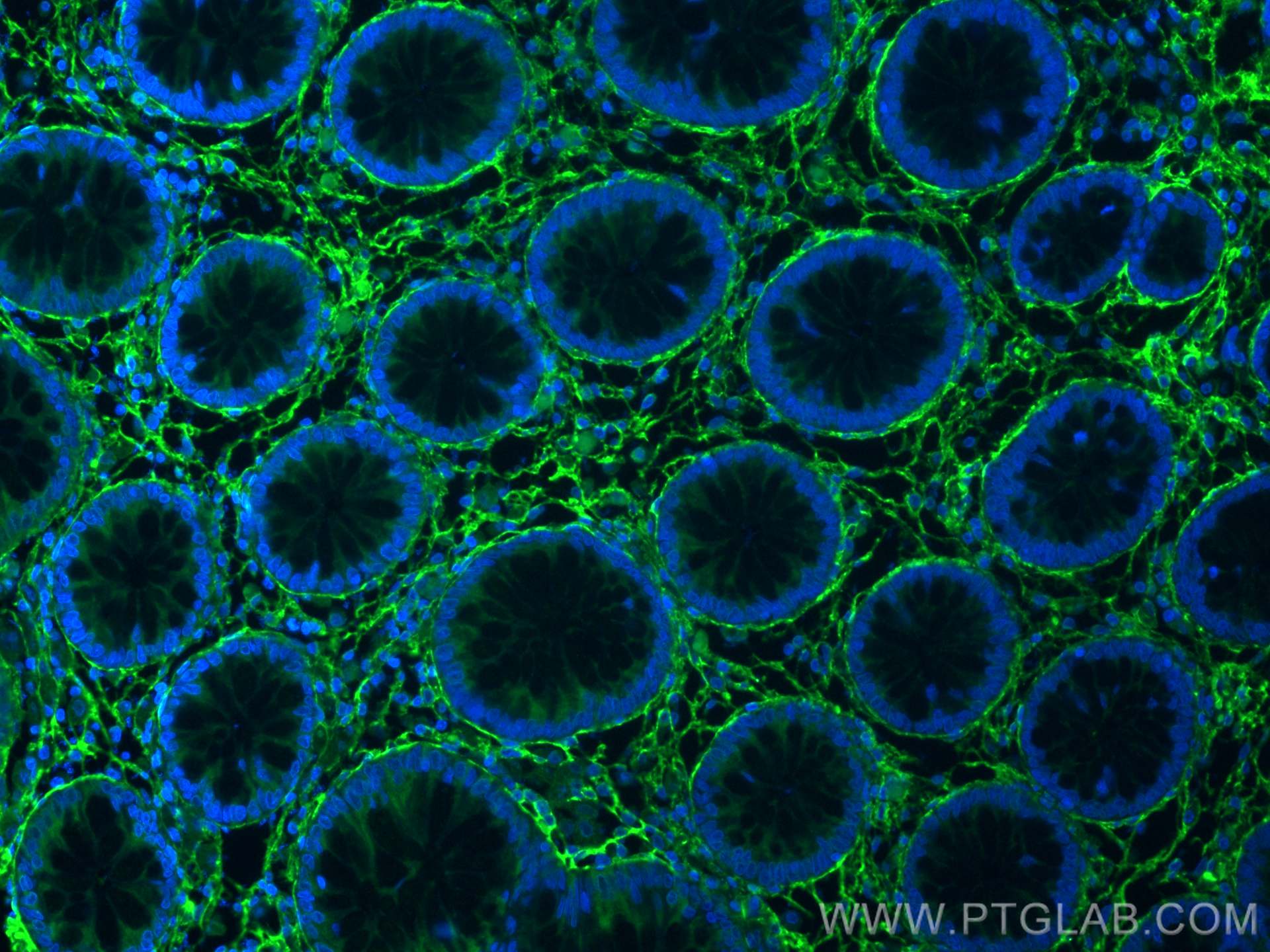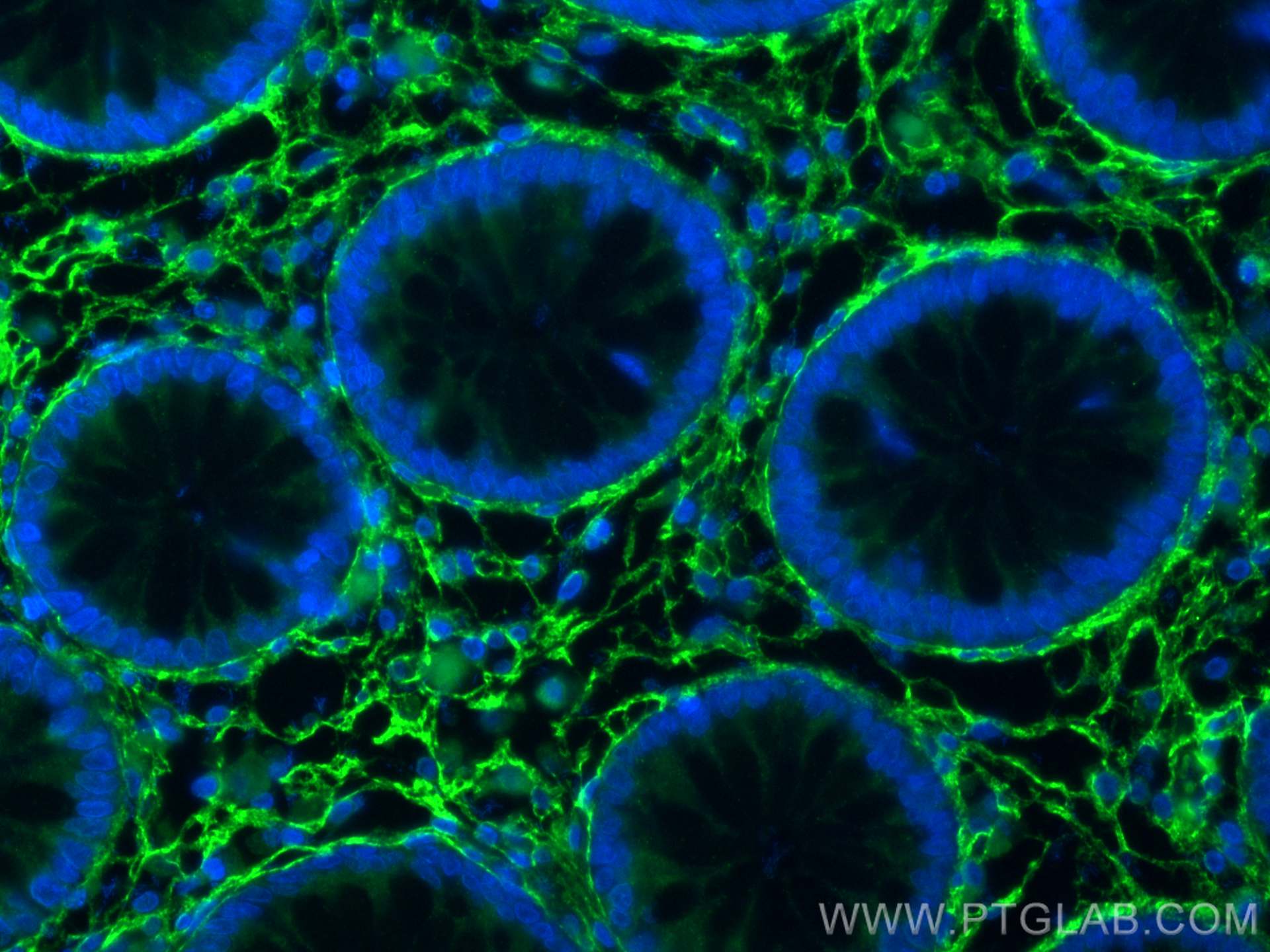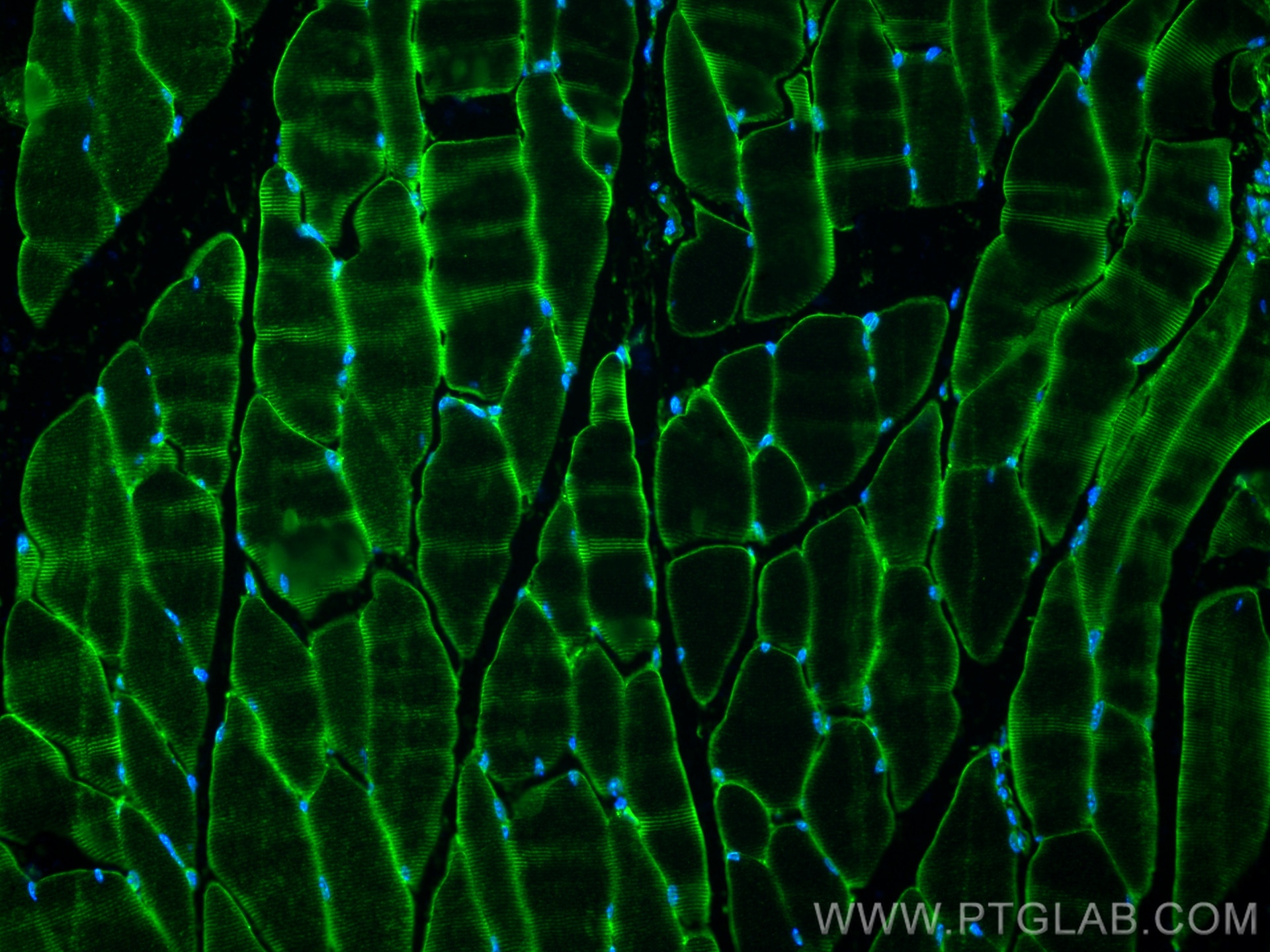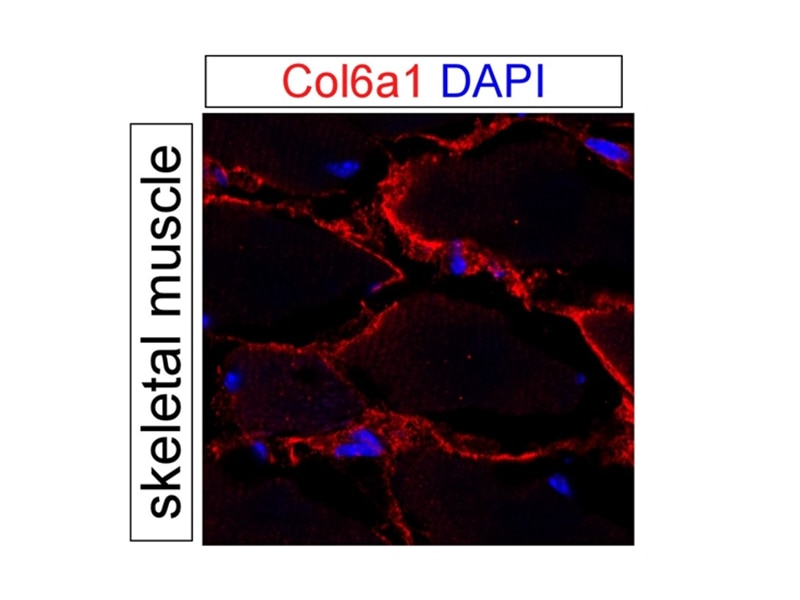Tested Applications
| Positive WB detected in | mouse heart tissue, HEK-293T cells, human heart tissue, human skeletal muscle tissue, rat heart tissue |
| Positive IP detected in | mouse heart tissue |
| Positive IHC detected in | human colon tissue, human heart tissue, human hepatocirrhosis tissue, human kidney tissue, human liver tissue, human lung tissue, human placenta tissue, human skin cancer tissue, human spleen tissue, human testis tissue, mouse liver tissue Note: suggested antigen retrieval with TE buffer pH 9.0; (*) Alternatively, antigen retrieval may be performed with citrate buffer pH 6.0 |
| Positive IF-P detected in | human colon tissue, mouse skeletal muscle tissue |
| Positive IF detected in | mouse skeletal muscle tissue |
Recommended dilution
| Application | Dilution |
|---|---|
| Western Blot (WB) | WB : 1:1000-1:4000 |
| Immunoprecipitation (IP) | IP : 0.5-4.0 ug for 1.0-3.0 mg of total protein lysate |
| Immunohistochemistry (IHC) | IHC : 1:300-1:1200 |
| Immunofluorescence (IF)-P | IF-P : 1:50-1:500 |
| Immunofluorescence (IF) | IF : 1:20-1:200 |
| It is recommended that this reagent should be titrated in each testing system to obtain optimal results. | |
| Sample-dependent, Check data in validation data gallery. | |
Published Applications
| KD/KO | See 1 publications below |
| WB | See 23 publications below |
| IHC | See 10 publications below |
| IF | See 10 publications below |
Product Information
17023-1-AP targets COL6A1 in WB, IHC, IF, IF-P, IP, ELISA applications and shows reactivity with human, mouse, rat samples.
| Tested Reactivity | human, mouse, rat |
| Cited Reactivity | human, mouse, rat, pig, zebrafish, sheep |
| Host / Isotype | Rabbit / IgG |
| Class | Polyclonal |
| Type | Antibody |
| Immunogen |
CatNo: Ag10288 Product name: Recombinant human COL6A1 protein Source: e coli.-derived, PGEX-4T Tag: GST Domain: 770-1028 aa of BC052575 Sequence: NVISCQGLAPSQGRPGLSLVKENYAELLEDAFLKNVTAQICIDKKCPDYTCPITFSSPADITILLDGSASVGSHNFDTTKRFAKRLAERFLTAGRTDPAHDVRVAVVQYSGTGQQRPERASLQFLQNYTALASAVDAMDFINDATDVNDALGYVTRFYREASSGAAKKRLLLFSDGNSQGATPAAIEKAVQEAQRAGIEIFVVVVGRQVNEPHIRVLVTGKTAEYDVAYGESHLFRVPSYQALLRGVFHQTVSRKVALG Predict reactive species |
| Full Name | collagen, type VI, alpha 1 |
| Calculated Molecular Weight | 1028 aa, 109 kDa |
| Observed Molecular Weight | 140 kDa |
| GenBank Accession Number | BC052575 |
| Gene Symbol | COL6A1 |
| Gene ID (NCBI) | 1291 |
| RRID | AB_2229737 |
| Conjugate | Unconjugated |
| Form | Liquid |
| Purification Method | Antigen affinity purification |
| UNIPROT ID | P12109 |
| Storage Buffer | PBS with 0.02% sodium azide and 50% glycerol, pH 7.3. |
| Storage Conditions | Store at -20°C. Stable for one year after shipment. Aliquoting is unnecessary for -20oC storage. 20ul sizes contain 0.1% BSA. |
Background Information
Type VI Collagen is a major structural component of microfibrils. Type VI Collagen was found to be present throughout the connective tissue and in the extracellular matrix of cultured fibroblasts (PMID: 6723253). It is a heterotrimer composed of three different chains: alpha-1(VI), alpha-2(VI), and alpha-3(VI) or alpha-5(VI) or alpha-6(VI). The alpha-1(VI) chain is encoded by COL6A1 gene. Mutations in this gene result in Bethlem myopathy and Ullrich congenital muscular dystrophy.
Protocols
| Product Specific Protocols | |
|---|---|
| IF protocol for COL6A1 antibody 17023-1-AP | Download protocol |
| IHC protocol for COL6A1 antibody 17023-1-AP | Download protocol |
| IP protocol for COL6A1 antibody 17023-1-AP | Download protocol |
| WB protocol for COL6A1 antibody 17023-1-AP | Download protocol |
| Standard Protocols | |
|---|---|
| Click here to view our Standard Protocols |
Publications
| Species | Application | Title |
|---|---|---|
Cell Death Differ Developmental growth plate cartilage formation suppressed by artificial light at night via inhibiting BMAL1-driven collagen hydroxylation | ||
Cancer Res Sarcoma Cells Secrete Hypoxia-Modified Collagen VI to Weaken the Lung Endothelial Barrier and Promote Metastasis | ||
Cell Rep The mechano-chemical circuit in fibroblasts and dendritic cells drives basal cell proliferation in psoriasis | ||
Matrix Biol Proteome-wide and matrisome-specific atlas of the human ovary computes fertility biomarker candidates and open the way for precision oncofertility. | ||
Oncogene Twist1-induced activation of human fibroblasts promotes matrix stiffness by upregulating palladin and collagen α1(VI). | ||
Cancer Gene Ther Schwann cell derived pleiotrophin stimulates fibroblast for proliferation and excessive collagen deposition in plexiform neurofibroma |
Reviews
The reviews below have been submitted by verified Proteintech customers who received an incentive for providing their feedback.
FH Malak (Verified Customer) (02-24-2021) | It works well in the western blot
|

